
Sunday, January 22, 2006
By : Mizgîn
There is an interesting little timeline, with some equally interesting undercurrents, connected with the Turkish state's efforts to close Roj TV, and unless one traces all the threads, one is bound to miss it. To my knowledge, there is no one article which collects all the threads and undercurrents together. I should also say that it helps to have a couple of hevals to help with collecting the threads.
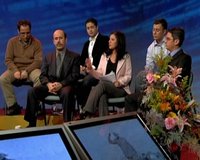
On 12 January, 2005, the Turkish Embassy in Denmark lodged a complaint with the Danish Radio and Television Board against Roj TV. The DRTB was only able to rule on one count of the complaint, that of incitement to hatred, and the Board found that Roj TV had not violated Danish broadcasting laws on that count. The other two counts of the complaint had to do with matters concerning the criminal code and EU terrorist list. Since DRTB does not have any expertise or jurisdiction over such matters, they forwarded those complaints to the Danish police.
In September 2005, the Turkish government made another request of the Danish government to revoke Roj TVs broadcasting license. Clandestine Radio Watch carries a report from Turkish NTV, with a date of 21 September, 2005, which states that the Danish government turned down the complaint because Roj TV had not violated Danish broadcasting laws. What is interesting is that the next entry on the Clandestine Radio Watch page, is one in which Saudi authorities agree to investigate a request, no doubt made to them by the Turkish government, to investigate Roj TV as it was being broadcast in the Middle East on Arabsat.

The next date in our timeline is mid-November, 2005, when Erdogan refused to attend a press conference at which a Roj reporter was present. From that date onward, the Turkish media engaged in its usual feeding-frenzy over all things alleged to be PKK.
But something else happened in between the time that Denmark refused to revoke Roj TVs license in mid-September, and Erdogan's mid-November dramatics at the press conference. On 30 September, 2005, the Danish Daily, Jyllands-Posten, published twelve cartoons of the Prophet Mohammed. How does this concern Roj TV, you ask? Well, it doesn't directly concern Roj TV, but, if anyone can read between the lines or feel the undercurrents, the cartoon incident is being used as a pretext to bargain over Roj TV's existence.

If you follow the 30 September link, you will go to a Turkish Daily News article and you will see the photo of a man. You should know who he is. He's Erdogan's boy at the OIC, Organization of the Islamic Conference, Ekmeleddin Ihsanoglu. Or, rather, I should say Ihsanoglu is Fethullah Gulen's boy at the OIC, because Erdogan is Gulen's boy too, only at the AKP. Here's what the Lebanese al-Nahar had to say about Ekmeleddin Ihsanoglu:
The new Secretary-General of the Organization of the Islamic Conference (OIC), Dr Ekmeleddin Ihsanoglu, belongs to what used to be known in Turkey in the 1980s and 1990s as the Islamic nationalists – that group of nationalist Turks with (non-radical) Islamic inclinations, known for their association with the general structure of the Turkish state. Or to put the matter in more political terms, Dr Ekmeleddin is an Islamic personality who is directly associated with the Kemalist establishment.

The Turkish Islamists of the Gulen variety, sometimes called Fethullahci, are extremely protective of Turkish territorial integrity and prefer to see their Kurdish "problem" assimilate. They have a global network of schools which helps them to collaborate with those who can be persuaded to work against Kurdish interests, or those who are already known to work against Kurdish interests. For example, since the Iraq war, Erdogan has revived the Turkish relationship with Syria and Iran to counteract the de facto Kurdish state in South Kurdistan. What better way to ensure the silencing of Roj TV than to engage allies in the OIC against Denmark with the cartoon fiasco, while also questioning Denmark's committment to the War on Terror™?
And that is just where the cartoons and Roj TV come together, in an opinion piece by Semih Idiz in Turkish Daily News:
Some time ago I wrote in this column that Denmark was walking on thin ice, and the reference was not only to its lenient, almost protective, attitude towards Roj-TV, which Turkish authorities, and some EU countries, say is an extension of the PKK.

It was also a reference to the fact that Danish Prime Minister Rasmussen refused to meet ambassadors from Islamic or predominantly Islamic countries -- including Turkey, of course -- who were protesting the depiction of the Prophet Mohammed in a Danish newspaper's cartoons.
Idiz goes on to cry about the cartoons, accuse Danes of increasing Islamophobia, and mention how scandalized the UN is over this grave offense--more of which in a moment--and concludes with this:

How Denmark -- apparently a proud member of the war against terrorism -- resolves the PKK/Roj-TV file, which we understand is with the prosecutor now, or extricates itself from the cartoon debacle, which clearly shows insensitivity to others' beliefs and merely stokes the growing "civilizational conflict" that we are witnessing, will be interesting to watch.
As I mentioned before, Turkey's complaints against Roj TV began in January 2005. To this date, Danish authorities find no violation of broadcasting laws. Questions of Roj TV's finances were given to the police, who investigated and handed the file to the state prosecutor, where it sits to this day. In the meantime, a small group of former Danish ambassadors urges caution to avoid offending Muslim sensitivities but I ask, how much of that caution is really meant to avoid offending Turkish sensitivities? The Islamists do not give one damn whether Roj TV is closed, nor will they raise their voices to defend the Kurdish voice because they have not done so yet. The OIC is certainly not going to defend Kurdish interests, not with Ihsanoglu running the show. On the contrary, the OIC is firmly backing the Turkish state all the way. . . for their own anti-cartoon agenda.
And now to the UN. When has the UN ever defended Kurdish rights? Never, but at least it is consistent because it has made no statement about Turkey's attempts to violate the Kurdish right to free expression, even when the violation in question is also a violation of another country's "territorial integrity." Although the UN is incapable of understanding Kurdish concerns about this issue, it is only too capable of understanding the OIC's concerns:
The leader of the UN's work on human rights is saying in plain words that she is concerned over the drawings that Jyllands-Posten printed in September, expressing "apologies" for statements and actions demonstrating a lack of respect for the religion of other people. In a letter to the 56 member countries of the Organization of the Islamic Conference (OIC), she states: "I understand your concerns and would like to emphasize that I regret any statement or act that could express a lack of respect for the religion of others". In a complaint to the High Commissioner, the 56 Islamic governments have asked Louise Arbour to raise the matter with the Danish government "to help contain this encroachment on Islam, so the situation won't get out of control." Two UN experts, on religous freedom and on racism and xenophobia, are said to be working on the case. The Islamic governments have expressed satisfaction with the reply from Louise Arbour.

[. . . . ]
According to the director of the Danish Center for Human Rights, Morten Kjærum, the attitude of the High Commissioner is "by the book.""The concern of the High Commissioner reflects that the ban on discrimination is one of the most important and general within human rights law, because we know how disastrous it is when different groups are pitted against one another," says Morten Kjærum.
In an attempt at one-upmanship, Turkey, through Ihsanoglu and the OIC, manage to engage the UN to take that key terrain known as "moral high ground," to counter Denmark's moral high ground, the right of free expression. Despite the facade they all love to maintain, whether it be over questions of human rights or "terrorism," Turkey, the OIC and the UN are trying to bargain away the Kurdish voice, in the form of Roj TV, as an act of appeasement to the greater Islamic world. With Roj TV silenced, the Ankara regime would then be able to substitute translated TRT programming and broadcast it to the Kurdish world.
TRT programming, even though in Kurdish language, would still be a weapon of assimilation because the information would be from Ankara's perspective, not Amed's, and that is not acceptable.
To my hevals, many thanks. You know who you are.
This post is reproduced from http://www.rastibini.blogspot.com
with thanks and appreciation



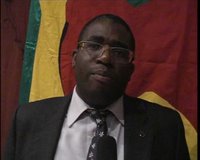
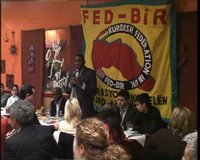

















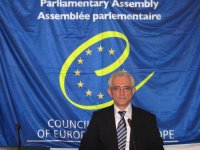



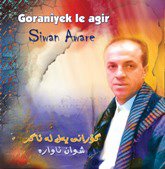 We live in a democratic society and demand justice!! The kurdish people have been persecuted for many years.
We live in a democratic society and demand justice!! The kurdish people have been persecuted for many years.




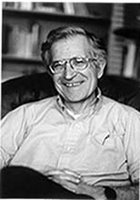






 I have seen Kurdish Turkey and I have seen, heard and smelt the fear whenever security forces were present. I think this fear deserves a voice and the one and only voice that will suffice is
I have seen Kurdish Turkey and I have seen, heard and smelt the fear whenever security forces were present. I think this fear deserves a voice and the one and only voice that will suffice is 
